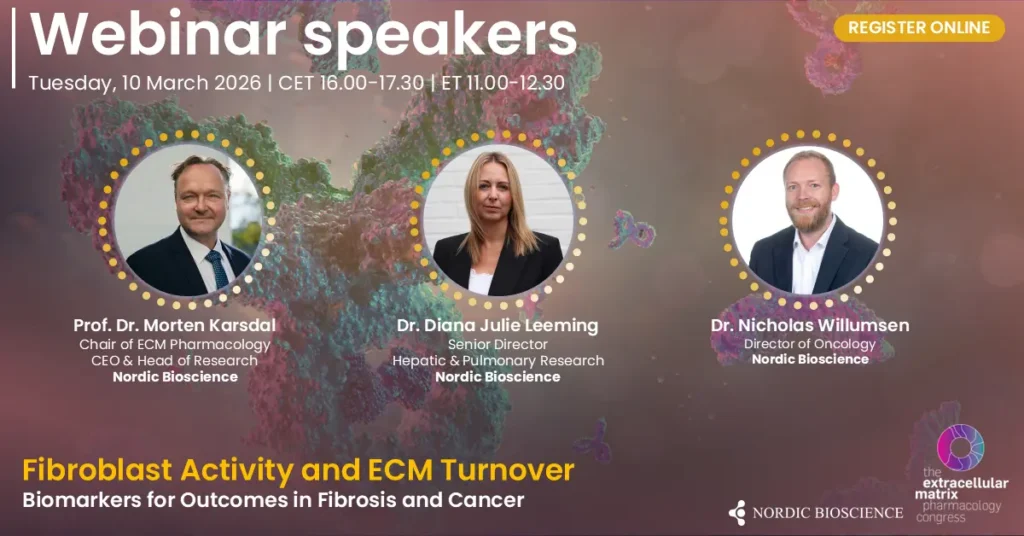BIGH3 is a mediator of TGFβ-Induced collagen formation in fibrosis and pancreatic cancer and a potential therapeutic target.
Abstract
Fibroblast-driven deposition of extracellular matrix, particularly type III collagen, is linked to poor outcomes in patients with liver fibrosis, fibrotic solid tumors such as hepatocellular carcinoma and pancreatic cancer as well as in patients with other fibrotic diseases. The pro-peptide of type III collagen (PRO-C3) serves as a serum biomarker of active collagen formation. PRO-C3 is elevated and prognostic in patients with liver fibrosis and pancreatic cancer, suggesting that targeting mechanisms behind PRO-C3 elevation could benefit these individuals. In this study, we sought to identify genetic variants associated with circulating PRO-C3 levels as potential therapeutic targets for fibrotic diseases and cancer. A genome-wide association study (GWAS) of the PERF cohort (n = 4968) identified variants in the gene TGFBI (BIGH3/βigH3), a known risk factor for tumor fibrosis, as associated with elevated PRO-C3. Further analyses of serum samples from patients with pancreatic ductal adenocarcinoma and liver fibrosis confirmed significant correlations between PRO-C3 and BIGH3 levels. Functional studies in a fibroblast model demonstrated that BIGH3 induces PRO-C3 in a dose-dependent manner, which was blocked by an anti-BIGH3 antibody, indicating a causal role. BIGH3 expression was observed in macrophages and fibroblasts, especially under TGFβ stimulation, positioning BIGH3 as a downstream mediator of TGFβ-induced fibrosis. Finally, blocking BIGH3 in a TGFβ-induced fibrosis model led to reduced PRO-C3 levels, demonstrating that BIGH3 is local mediator of pathological TGFβ signaling. This highlights that BIGH3 may be implicated in TGFβ-induced fibrosis and underscore the potential for treatment of pathological fibrotic processes by inhibiting BIGH3 in patients with elevated PRO-C3 levels.



